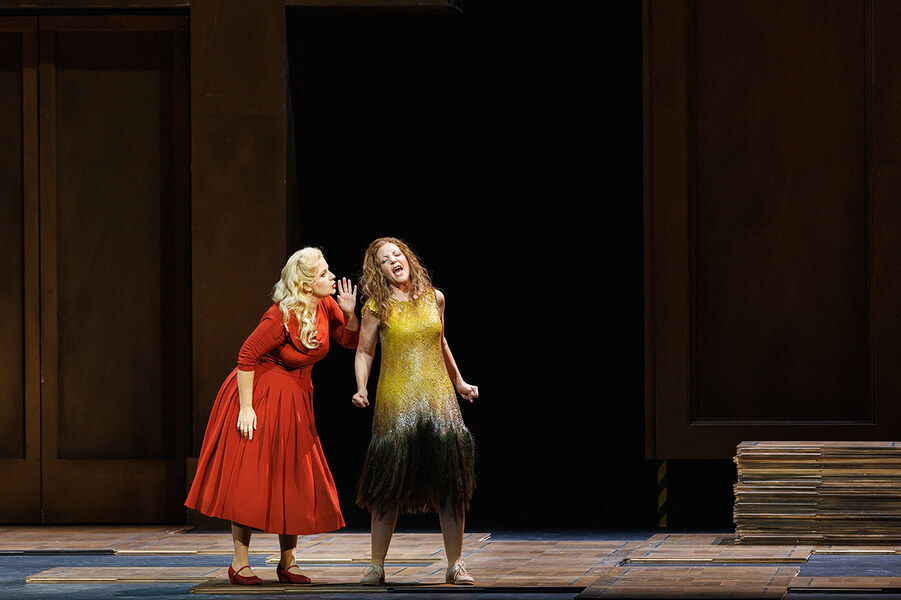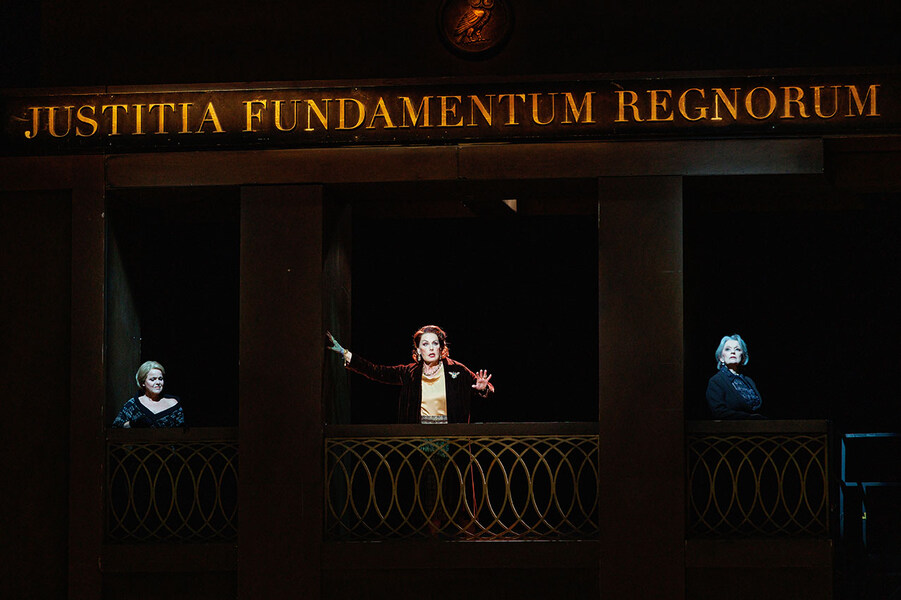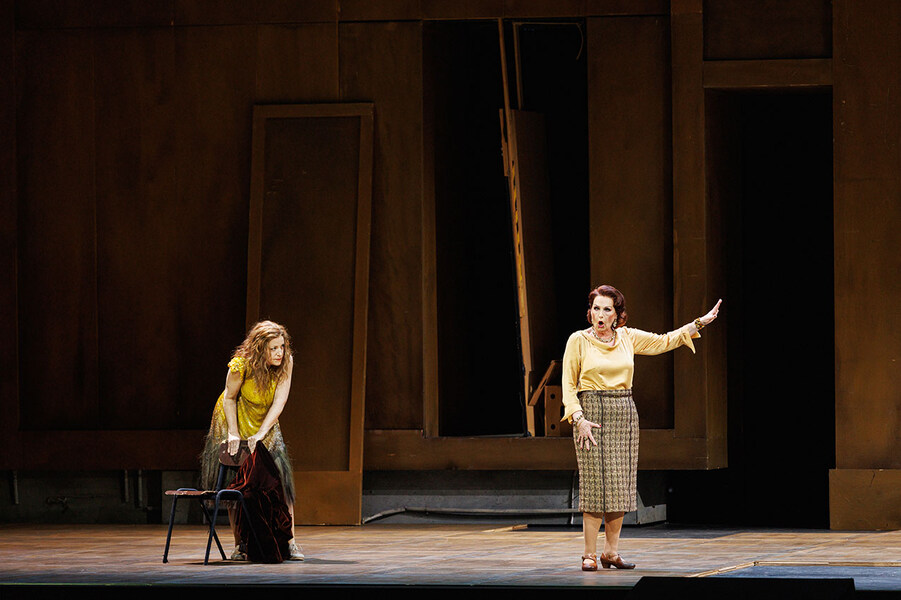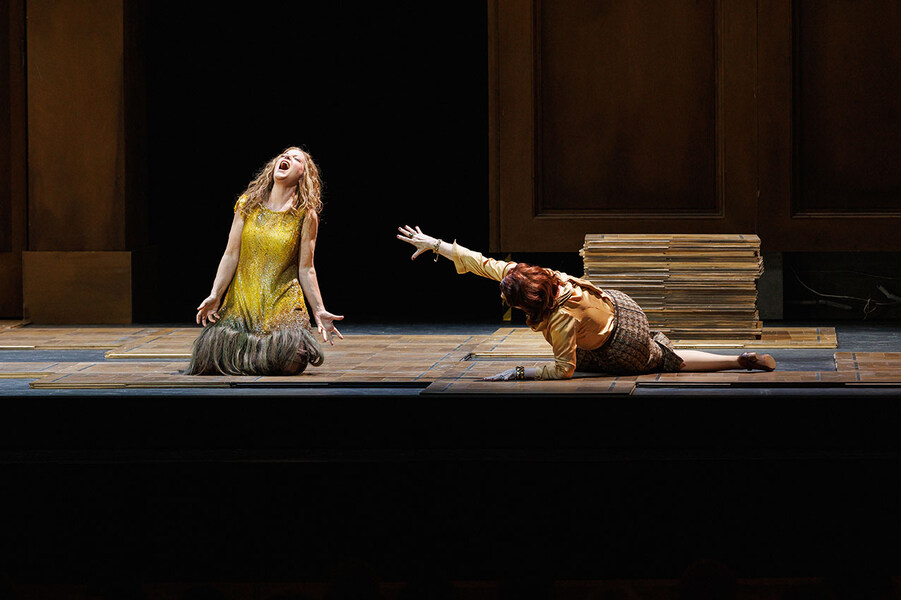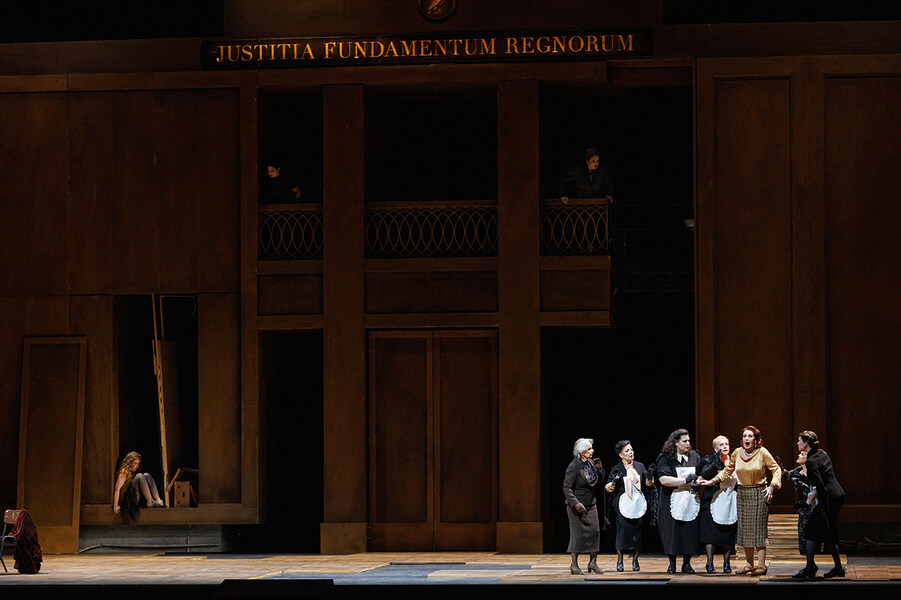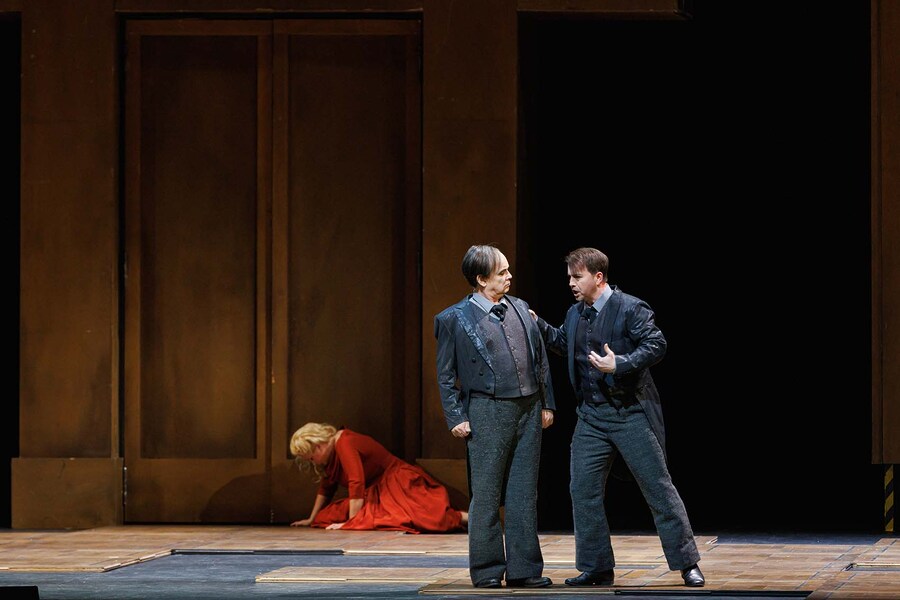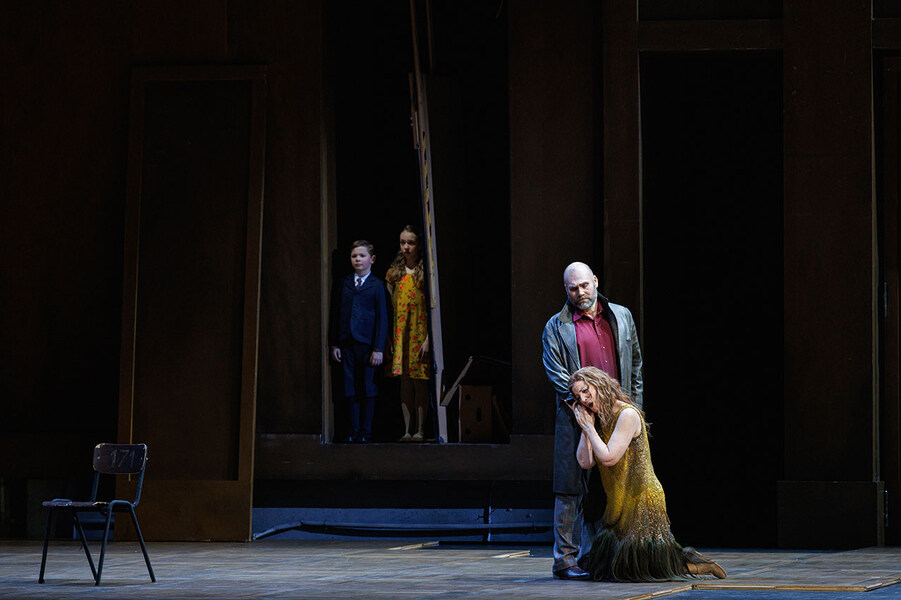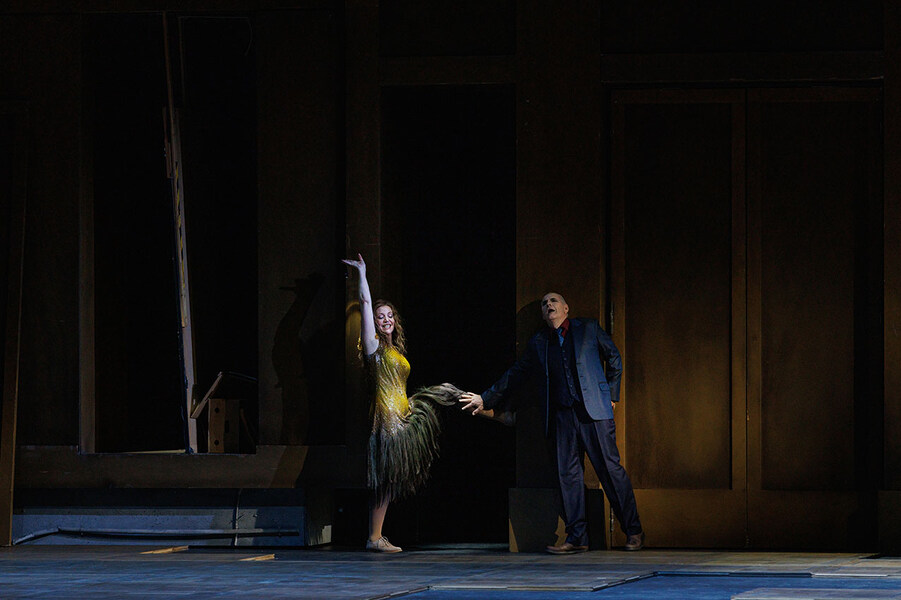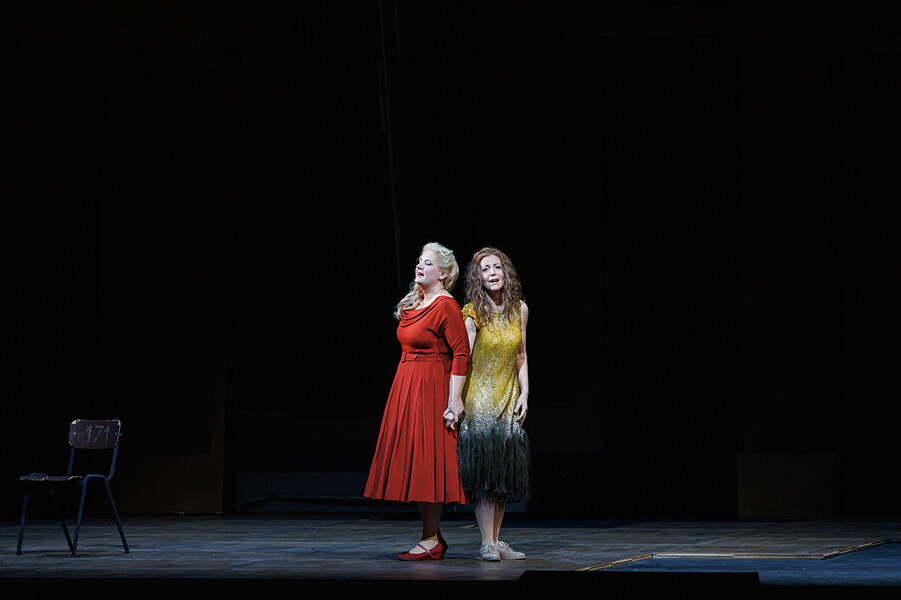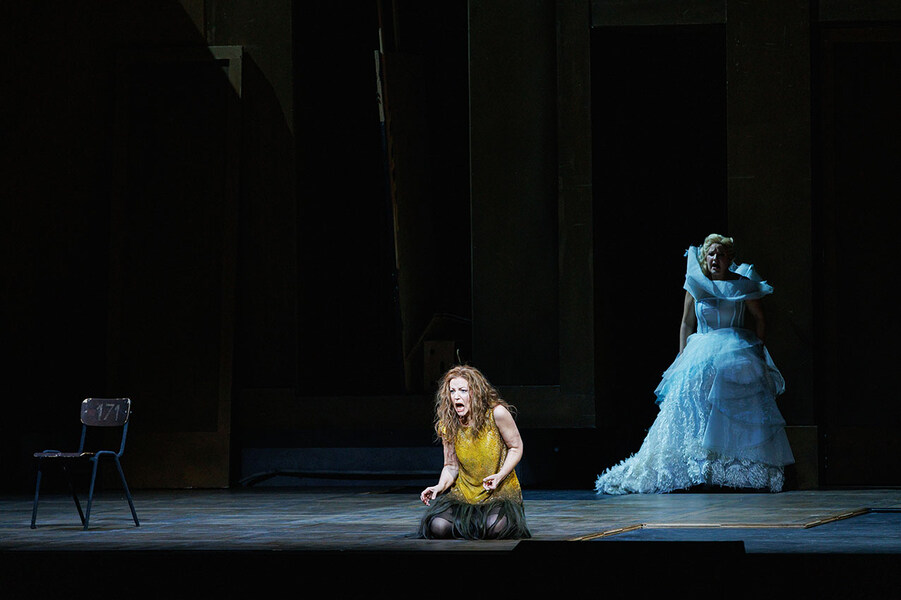Tragedy in one act
Libretto by Hugo von Hofmannsthal
Performed in German with German and English supertitles
Premiere
19. January 2014,
No further performances in the current season.
Premiere cast
- Conductor Marc Albrecht, Christoph Gedschold
- Staging Barbara Frey
- Set Design Muriel Gerstner
- Costume Design Bettina Walter
- Lighting Design Gérard Cleven
- Choir Jonathan Becker
- Dramaturgy Micaela von Marcard
- Chrysothemis Gabriela Scherer, Allison Oakes
- Orest John Lundgren, Markus Marquardt
- Vertraute Elisa Verzier, Menna Cazel, Christiane Hossfeld
- Junger Diener Timothy Oliver, Sven Hjörleifsson
- Aufseherin Kelly God, Sabine Brohm
- 2. Magd Nicole Chirka, Justyna Ołów
- 5. Magd Ofeliya Pogosyan, Tuuli Takala
- Klytämnestra Violeta Urmana, Doris Soffel
- Elektra Lise Lindstrom
- Aegisth Jürgen Müller
- Pfleger des Orest Tilmann Rönnebeck
- Schleppträgerin Ute Selbig
- Alter Diener Matthias Henneberg
- 1. Magd Michal Doron
- 3. Magd Simone Schröder
- 4. Magd Roxana Incontrera
Sächsischer Staatsopernchor Dresden
Sächsische Staatskapelle Dresden
Sächsische Staatskapelle Dresden
Generously supported by the Semperoper Foundation
Explore
Stücktrailer
Elektra
For years Elektra has been awaiting the fateful hour when she can avenge the death of her father Agamenon, murdered by his wife Klytaemnestra and her lover Aegisth. Every day Elektra nurtures her hatred, while her sister Chrysothemis vainly hopes to escape from their icy home and Klytaemnestra, plagued by feelings of guilt, is unable to sleep. However, when Orest finally arrives to take revenge, Elektra’s life also loses its only meaning. On stage, a chamber play; from the pit, orchestral fireworks: In Elektra the audience is gripped by an unfolding family tragedy of violence and depravity that is also a psychological study of guilt and redemption, forgiveness and revenge, and the question of justice. Richard Strauss wrote Elektra in 1909 for Dresden’s Royal Opera House as the successor to his Salome. Together with the poet Hugo von Hofmannsthal, he threw a modern and savagely incisive light on this ancient mythological tale. Director Barbara Frey has staged Strauss’s opera as a thrilling drama.
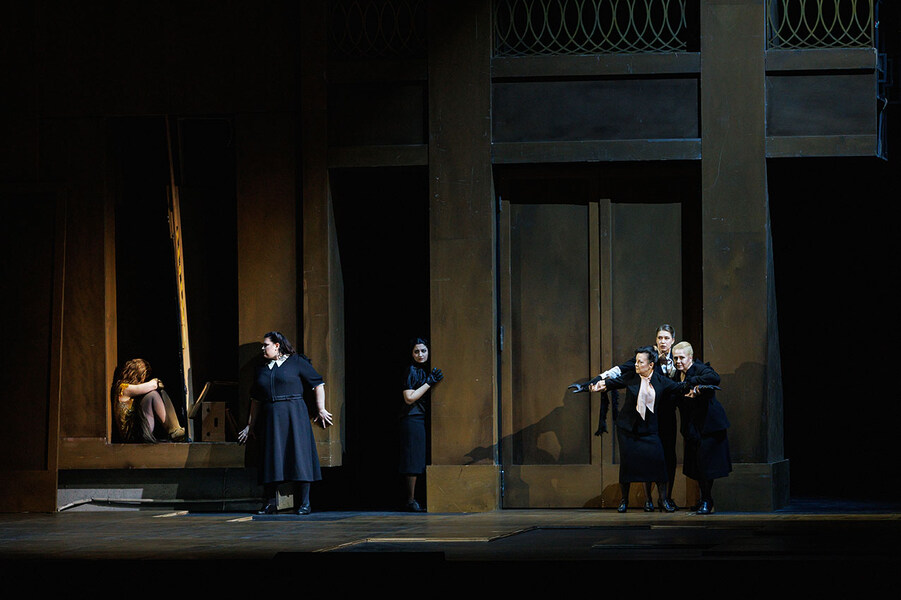
Gallery
